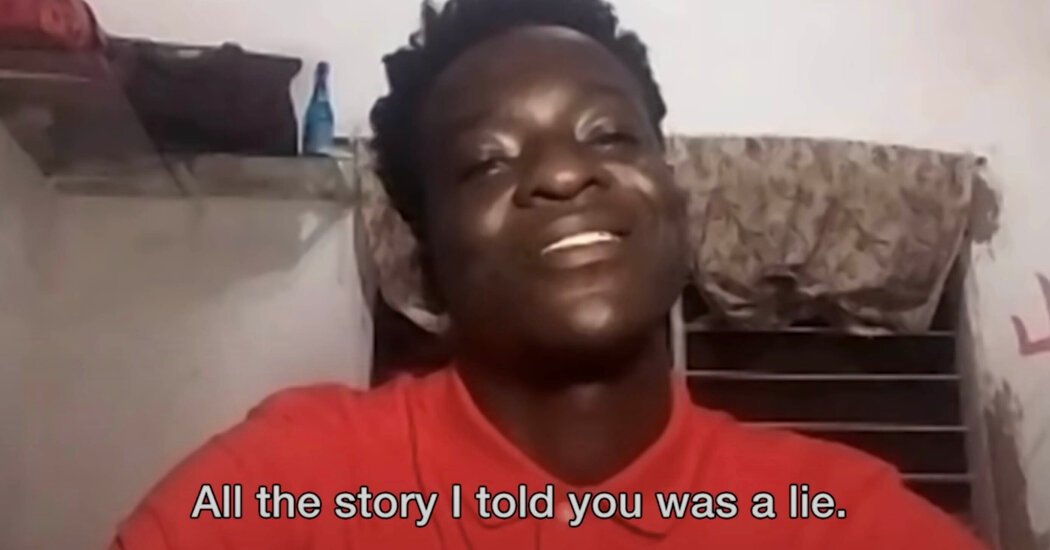Wesselman-Pierce lived with her husband, Vince Pierce, and his two sons. “I didn’t want to lose the friendship no matter what,” a teary Wesselman-Pierce told Schulman in the film. “A lot of the personalities that came out were just fragments of myself.”
At the end of the documentary, a ruminative Pierce recalled a tale he’d heard, and in turn, gave the movie — and the expression — its name. Cod, he said, were once shipped by boat in vats from Alaska to China, but the fish would arrive mushy and tasteless. Eventually catfish were added to the vats to keep the cod healthy. “There are those people who are catfish in life,” he said. In his mind, his wife was one of them. “They keep you guessing, they keep you thinking, they keep you fresh.”
Life, he added, would be “boring and dull if we didn’t have somebody nipping at our fin.”
When asked how catfishing became rampant, and the concept so widely understood, Schulman, now 39 and a father of three, said that while people have been conned and scammed forever, the fast-changing online and social climate of the early 2010s produced a perfect storm — a lawless digital landscape where once-accepted expectations around romance, friendship and connection blurred, making it increasingly complex to parse authenticity from artifice.
Instagram was introduced in 2010, and then Snapchat in 2011. The dating app Grindr arrived in 2009, then Tinder in 2012. Concepts that now seem banal — starting relationships online with strangers — were still seen as bizarre and rare. On the heels of the documentary, Schulman was inundated with emails from people with stories similar to his.
The idea really entered the public consciousness in early 2013, when Deadspin reported on a scandal surrounding the Notre Dame football star Manti Te’o. He led his team to the national championship game and was a Heisman Trophy finalist, all in the shadow of the death of his girlfriend early in the season. But the girlfriend, Deadspin discovered, was never real.
Te’o was the victim of a catfishing hoax, but the situation was so incomprehensible at that time, theories swirled about his possible involvement in the fraud.


